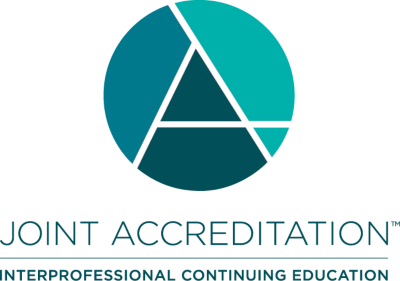Changing Minds and Mental Models: Developing a Transformative Nexus Team
Sunday, August 18, 2019, 12:00 pm - 3:00 pm
Greenway A Room
Have you ever asked, “What is a Nexus? How do you form a Nexus team? How does forming a Nexus help change old mental models and ultimately change systems? Is it really any different than what we are already doing? How can we be sure we aren’t using old models of thinking and applying a technical solution to a complex problem?”
The National Center for Interprofessional Practice and Education created the concept of the Nexus with a vision of redesigning both healthcare education and healthcare delivery simultaneously to be better integrated and more interprofessional. Focusing on health and learning outcomes, the Nexus requires a new relationship between health professions education programs and their health and community systems to meet the rapidly changing challenges of both systems.
The National Center has also created and used a suite of tools (called the Nexus Learning System) to coach a cohort of sixteen community-campus partnerships that are living out the concept of the Nexus. The large-scale national evaluation of the cohort is demonstrating positive learning and health outcomes when academic/educational programs and clinical practices and/or community organizations form robust and trusting partnerships. The Nexus involves developing these true partnerships that begin with the needs of patients/people, families, and communities. The Nexus then leads to the design of programs where students and residents not only learn about health systems and master interprofessional teamwork in real-life, real-time practice, but add value to the practice and experience a changing culture.
Join us for practical tips on how to transform your academic-clinical partnership to reap the benefits of a true Nexus team. This session will include selected practical tools (see below) from the soon to be released Setting the Stage for a Transformative Nexus Team: An Introductory Toolkit. The target audience includes practicing educators, clinicians, and staff as well as education and practice leaders.
Outcomes:
After completion of this workshop, participants will be able to:
- Discuss the characteristics of the Nexus, the Nexus Learning System, and selected practical tools that are helping academic-practice teams achieve learning and health outcomes.
- Utilize selected tools to examine respective environments relative to the state of IPE and how to facilitate a greater alignment of education and practice to create a Nexus Team and a new culture.
- Differentiate current team characteristics with similarities and differences of a Nexus team.
- Develop a plan for a Nexus team starting with patients/people, families, and community needs first including a vision and a communication strategy.
The Accelerating Interprofessional Community-Based Education and Practice initiative has been made possible through the generous support of four private foundations including, the Robert Wood Johnson Foundation, The John A. Hartford Foundation, the Josiah Macy Jr. Foundation and the Gordon and Betty Moore Foundation. The National Center extends its gratitude for their vision and support.
Interprofessional Continuing Education
This activity has been planned and implemented by the National Center for Interprofessional Practice and Education. In support of improving patient care, The National Center for Interprofessional Practice and Education is jointly accredited by the Accreditation Council for Continuing Medical Education (ACCME), the Accreditation Council for Pharmacy Education (ACPE), the American Nurses Credentialing Center (ANCC) and the Association of Social Work Boards (ASWB) to provide continuing education for the healthcare team. The intent is to provide accreditation and continuing education credit for this workshop. For questions regarding continuing education, please email ipceapps@umn.edu.




